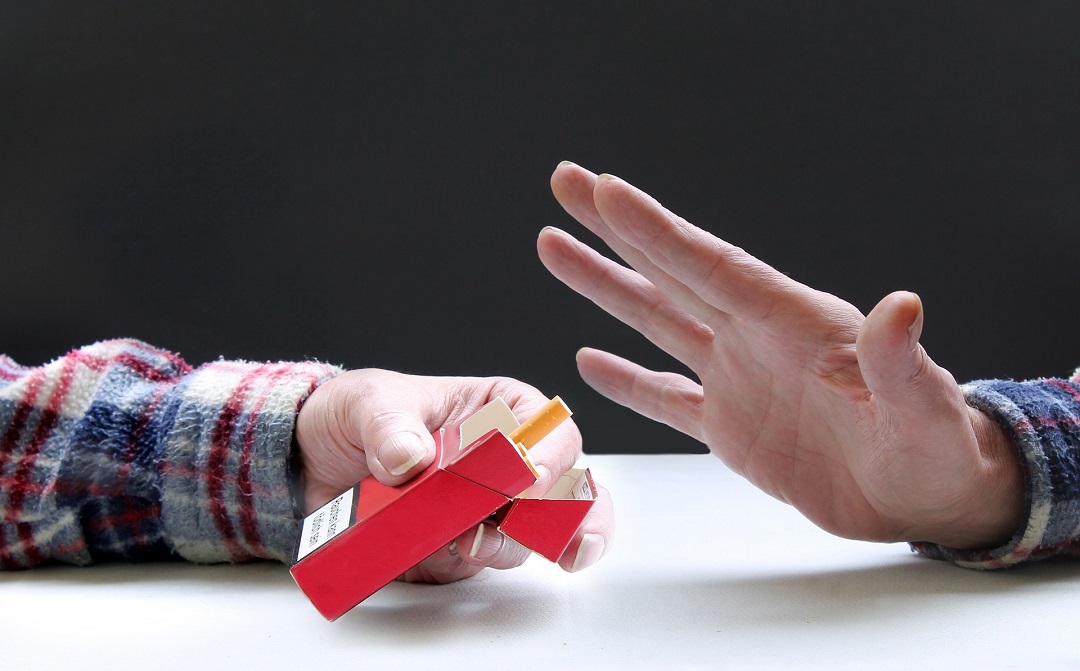Many individuals grapple with the challenge of building lasting habits, often feeling overwhelmed by the urgency to overcome negative behaviors. However, the key to successful habit formation lies not just in willpower, but in understanding and leveraging your unique strengths. This is where tools like the HIGH5 strengths test become invaluable. By identifying your innate talents and motivations, you can align your habit-building efforts with your natural inclinations, making the process more intuitive and sustainable. As you’ll discover, building positive habits and ensuring they stick becomes significantly more achievable when you approach it from a strengths-based perspective. This article will guide you through effective habit-building strategies, demonstrating how understanding your personal strengths can transform this often challenging process into an empowering journey of self-improvement.
Habit formation is a long process, which means breaking both bad and good habits will be challenging. All of the small decisions you may overlook could become consistent, ingrained habits.
This is why paying attention to your behavior is so important. Nonetheless, there are ways you can change your patterns of behavior in a positive way. Any can change their daily choices given enough time and effort.
Switching your negative habits to more positive ones has a number of long-term benefits and positive outcomes that affect our daily lives. This article covers the top beneficial habit-building strategies and how you can implement them today.
How to Build a Habit?
Building habits starts by breaking down larger habits into more manageable ones, a process that can be significantly enhanced by understanding your personal strengths. The HIGH5 strengths test can be an invaluable tool in this journey, helping you identify your natural talents and tendencies. By aligning your habit-building efforts with your innate strengths, you can make even the most challenging habits more attainable. For instance, if the HIGH5 test reveals that one of your top strengths is ‘Achiever,’ you might find it easier to incorporate small, achievable habits into your daily routine, as this plays to your natural inclination for accomplishment. This strengths-based approach ensures that the small habits you choose are not only manageable but also energizing and aligned with your authentic self.
Over time, you can build upon this habit by challenging yourself more daily as opposed to tackling an immense challenge immediately. Whenever you get off track, ensure you always get back into incorporating the positive series of behaviors into your life.
Realize that these slip-ups will inevitably occur, so do not beat yourself up. If you do, your motivation will likely drop and you will go back to your old habits. However, slipping up a couple of times will not hurt you in the long run if you get back on track.

Remember that habit-building is about sustainability and patience. Find sources of motivation when you feel like giving up. Remind yourself of why you are trying to change your habits.
You should have a strong motivator behind your decision to change, so ensure you never forget about your end goal. If you become extremely persistent in consistently following through with your habit goals, these repetitive behaviors will become habits.
Pro Tip From HIGH5
When building new habits, start by taking the HIGH5 strengths test to identify your top strengths. Then, design your habit-building strategy around these strengths. For example, if ‘Discipline’ is one of your top strengths, you might excel at creating and sticking to a structured habit-formation plan. If ‘Creativity’ is a top strength, you might find success in devising unique and engaging ways to reinforce your new habits. By aligning your habit-building approach with your natural strengths, you’ll find the process more enjoyable and sustainable in the long run.
Guide with 5 Steps to Build a Habit
Habits make up a significant portion of our behaviors. They truly stick with us, so ensure the habits you have now are positive ones. To be happy and successful, you should pay close attention to how your habits impact your personal life.
You can use a multitude of methods to tackle bad habits and form beneficial ones. However, in a digital era, it can be challenging to decipher which strategies are the best to implement. The following is an easy-to-follow guide that you can use to build new good habits.
1. Start with an incredibly small habit
While new habits can be challenging to build, understanding your personal strengths can make the process significantly easier and more effective. The HIGH5 strengths test offers valuable insights into your natural talents and motivations, providing a solid foundation for habit formation. Instead of relying solely on willpower or external motivation, which can be inconsistent, focus on leveraging your innate strengths. For example, if the HIGH5 test reveals that ‘Focus’ is one of your top strengths, you might find it easier to concentrate on building one small habit at a time. By aligning your habit-building efforts with your strengths, you’re more likely to stay motivated and overcome obstacles, as you’re working in harmony with your natural inclinations rather than against them.
Understand that it is normal to feel like your willpower is decreasing over time. In fact, this is a normal neurological response. Motivation fluctuates throughout the course of your habit-building journey.
So, it is best to select a habit that does not require an immense amount of motivation. How can you do this? Start by downsizing your goal habits into small habits.
For instance, instead of forcing yourself to run five miles daily, start by running just a half-mile. You will not need as much motivation to tackle the small habit, so it is easier to maintain. Later, you can build upon it.
2. Increase your habit in very small ways
Over long periods of time, even small changes in your habits add up. A percent increase here and there may not seem like much, but it does matter. Do not start your habit goals off too loftily. Instead, start by conquering small habit goals.
You can gradually increase the loftiness of your goals after you accomplish small tasks. When you do this, your self-confidence and motivation increase. Then, the behavior becomes ingrained and adding upon the habit is less challenging.
3. As you build up, break habits into chunks
The small increases previously mentioned will result in noticeable changes over the course of a few months. However, ensure that the habits are all reasonable. You do not want to give yourself too much of a difficult time.
Otherwise, you will most likely abandon the habit. If you make your habit reasonable to follow, your motivation will remain high and the behavior is easier to replicate each time. Breaking up your habits is another way to make habits more maintainable.
If you want to study an hour each day, make that hour into thirty-minute sessions. Or, if you want to run a mile daily, run 30 minutes in the morning and 30 minutes in the evening.
4. When you slip, get back on track quickly
Even the most successful people make mistakes. However, the key is always getting up when you are knocked down and persevering. You should aim to do this as quickly as possible.
Do not dampen your spirits and motivation by focusing on the few times you miss your habit. The research indicates this will not have long-term consequences. Abandon the all-or-nothing mentality in favor of a more balanced approach to make your habits effortless behaviors.
Plan to fail at some point in your behavior-building journey. Think about how you can prevent failure. Think about the potential roadblocks you may encounter. What can you do to avoid them or overcome them? Do any people or places trigger you to get off track? How can you get back on track as quickly as possible?
These are all questions you should consider before building a habit.
5. Be patient. Stick to a pace you can sustain
Patience is a skill that is truly beneficial to building habits. Understand that your progress can be immense if you stick to your habit-building plan and stay persistent. Set realistic expectations and ensure your behaviors are sustainable.
If you find yourself maxing out at 3 miles, stop forcing yourself to run for 5. You will not sustain this long term. Instead, gradually increase your mileage. If you are making sales calls, do not expect to make 200 calls daily if you feel challenged at just 100.
Habit formation should not be overly challenging in the beginning. Over time, you can increase the difficulty of your habit little by little.
When doing so, you may not even notice the challenging nature of the habit. You surely would if you immediately challenged yourself with the most difficult-to-follow habit, though.
How Long Does it Need to Build a Habit?
The amount of time it takes to build a habit depends on a number of factors. This includes the individual, their environment, how challenging the habit is, and even more.
The more challenging you set the initial habit goal, the longer it will take. You can ensure you build the habit quicker by breaking it down into easier-to-build habits, which tend to be smaller.
However, there are some general numbers that can help you estimate how long habit-building takes. A commonly referenced habit-building rule is the 21/90 rule.
The concept behind this rule is that building a habit usually takes around 21 days. To make this habit a true lifestyle change, though, would take around 90 days. It takes 90 days to make a habit automatic.
Usually, it is best to estimate that these numbers are minimums, not maximums. If it takes you longer, do not give up. It could be that your habit is simply more challenging than average.
Habit Building Tips & Tricks
While habit building can be challenging to maintain long-term, understanding and leveraging your personal strengths can transform this process into an enjoyable and sustainable journey. The HIGH5 strengths test provides a powerful framework for identifying your innate talents and motivations, which can be strategically applied to habit formation. By aligning your habit-building efforts with your natural strengths, you can turn seemingly difficult behaviors into pleasurable habits that stick. For instance, if the HIGH5 test reveals ‘Strategist’ as one of your top strengths, you might excel at planning and executing a detailed habit-building roadmap. The following habit-building tips and tricks, when combined with insights from your HIGH5 strengths assessment, can help you create lasting positive changes in your life.
Start small
Small habits are easier to maintain long term. All of the biggest goals start by tackling small habits. If you start with creating too challenging large habits, you will eventually lose motivation. Therefore, start small. Later, you can build upon these smaller habits.
Link activities
Connect two habits with one another. This way, you can remember two habits at once. Linking helps your brain understand two actions are interrelated. The first habit should already be formed.
For instance, say brushing your teeth becomes an ingrained habit. You can immediately connect this act to another habit. After brushing your teeth, you could go for a run each day. Over time, you will associate running with brushing your teeth. The two will become equally consistent.
Join a group and involve your friends
Social support is a fantastic way to stay motivated. It can also make habit formation more fun and exciting. Peer pressure is positively utilized if your colleagues are keeping you accountable. You could work on helping each other out, even if your habit goals are different.
Use a rewards system
Find a way to associate good habit with positivity in your mind. Rewards are a common way to do this. Bad habits often trigger dopamine releases in our brains. You must find a way to get similar pleasurable feelings without performing the bad habit.
For example, instead of smoking, you can watch a thrilling movie and enjoy a bit of fruit. You can relax and enjoy something without moving further from your goals. You could also implement the bad habit in more controlled ways.
This could come in the form of a diet break or a break from exercise, for instance. The key is about balance and ensuring the positive habits are maintainable long term. Sometimes, this means indulging in your bad habits occasionally.
How to convert a bad habit into a good habit
The journey of converting a bad habit into a good one begins with self-awareness, a process that can be significantly enhanced by understanding your personal strengths. The HIGH5 strengths test offers valuable insights into your natural talents and tendencies, which can be leveraged in identifying and addressing negative habits. For instance, if the test reveals ‘Self-Awareness’ as one of your top strengths, you might excel at recognizing when a habit is detrimental to your well-being. Once aware, use your strengths to understand what triggers the habit. If ‘Analyst’ is a prominent strength, you might be particularly adept at dissecting the environmental or social factors that encourage the negative habit. By applying a strengths-based approach to habit conversion, you’re not just identifying problems, but also equipping yourself with personalized tools to create positive change.
Regardless, find out what causes this habit to stick with you. Then, you must replace this behavior with more positive actions. It is more difficult to completely get rid of bad habits than replace them. Place yourself in a tempting situation.
Ask yourself how you can avoid your trigger and overcome the urge to perform the bad habit. Use “if-then” statements to organize your thoughts. You will already know how to respond to a tough situation before being placed in it.
Reward yourself whenever you resist this urge. This helps you associate positivity with new habit.
Pro Tip From HIGH5
When you encounter challenges in your habit-building journey, turn to your HIGH5 strengths for solutions. If ‘Problem Solver’ is a top strength, approach obstacles as puzzles to be solved. If ‘Optimism’ is prominent, use your natural positivity to reframe setbacks as learning opportunities. By viewing challenges through the lens of your strengths, you’ll be better equipped to overcome them and stay committed to your habit-building goals.
Worksheet for Building Habits
Understanding the distinction between habits and goals is crucial, and this understanding can be deepened by incorporating insights from the HIGH5 strengths test. Goals represent the end results you wish to achieve, such as improving your health or reaching a specific sales target. Habits, on the other hand, are the actions that propel you towards these goals. The HIGH5 strengths assessment can illuminate which types of habits align best with your natural talents and motivations. For instance, if the test reveals ‘Achiever’ as a top strength, you might excel at setting and pursuing ambitious goals, while your habits could focus on consistent, daily progress. By aligning your goals and habits with your identified strengths, you create a powerful synergy that enhances your ability to achieve lasting change and success.
Potential habits include running a mile daily or cold calling 50 people daily. Small changes make big differences over time. A small 1% increase in efficiency or the 1% reduction in a bad habit will result in positive change in a few months or years.
Keep your environment updated. Ensure you encourage your positive habits and stay away from the bad habit triggers. Guarantee that you do not have unhealthy food if your new habit is healthy eating. You do not want to be tempted by the environment. Get others around you involved in your new habit.
Your friends will help you stay on track and be accountable. Therefore, backing out will not be as simple. Their support and encouragement may serve as great motivation. Track the habits.
Use a number of strategies to keep track of how well you uphold your habits. For instance, use journals, reminders, spreadsheets, and so on. Recognize how much progress you make over time. It may surprise and motivate you as well.
Acknowledge your success. The best habits take time to get benefits from. You cannot immediately reap the benefits of starting a positive habit. However, keep yourself motivated by giving receiving small rewards. And, stay patient to reap those major rewards.
Pro Tip From HIGH5
When creating your habit-building worksheet, incorporate sections that specifically address your top strengths identified by the HIGH5 test. If ‘Planner’ is a key strength, include detailed scheduling components in your worksheet. If ‘Growth’ is prominent, add reflection sections to track your progress and learnings. By tailoring your habit worksheet to your unique strengths profile, you’ll create a more engaging and effective tool for your personal development journey.
3 Books for How to Build a Good Habit
A number of quality books can help develop good habits. These authors have an immense amount of knowledge on this subject. Some of the best books you should consider reading include:
Atomic Habits: An Easy & Proven Way to Build Good Habits & Break Bad Ones – Book by James Clear
Atomic habits start out small. This comes the name “atomic.” Over time, these habits become ingrained in our daily routines according to Clear. We get an immense amount of strength from our habits if they are done correctly. Clear reveals that the root of bad habits is not a lack of desire to change.
It is a lack of foundation to change. The changes we make now, even small changes, are compounded over time. In the next 5 years, that 5% change you made in calorie consumption will have drastic effects, for instance.

The Power of Habit – Book by Charles Duhigg
In this book, Charles Duhigg describes the inner workings of habits. He gives real-world examples of habit formation and how habits impact our lives. Duhigg adds a multitude of approaches you can use to combat bad habits.
You could even turn your bad habits into beneficial ones with the help of this book. The secret to building positive behavior and how such behaviors impact your life, family, business, and society are all shared in The Power of Habit.
High-Performance Habits: How Extraordinary People Become That Way – Book by Brendon Burchard
Brendon Burchard collected data from internationally renowned studies on high achievers. He compiled the results into this insightful book. The author covers six main systems that help you build habits to achieve your goals and live a fulfilling life.
These six main habits are seeking clarity, generating energy, raising necessity, increasing productivity, developing influence, and demonstrating courage. If you apply these habits to your daily life, success and happiness are more likely to be achieved.
How to Build Habits F.A.Q
What’s the 21 90 rule?
The 21/90 rule describes that to form a habit, you must perform the same activity for 21 days in a row. However, for this to be a lifestyle change that is truly continued for the long term, you must perform the same task for 90 days.
This is so because developing a habit takes time and effort. This is especially true if you want to take a short-term habit into a long-term lifestyle change.
How can I be healthy in 2022?
Health is built by combining multiple different components. Firstly, you must take care of your body. Eat healthfully by including many fruits and vegetables in your diet. Exercise regularly as well, and sleep for at least 8 hours whenever possible.
Your mental health is also crucial to look after. Take regular breaks throughout the work day, practice mindfulness, and consider starting a gratitude journal.
What are 5 habits that can improve my life?
If you want to have a healthy mind and body, you must get enough rest. Aim for at least 8 hours a day whenever possible. Healthy eating and exercise are also habits that improve your health. They are very common New Year resolutions for a good reason! To develop your social health, aim to connect with others.
Try finding new friends at work or through other hobbies. Practicing gratitude and developing a positive mindset is an undoubtedly excellent way to maintain strong mental health. Finally, reflect on your day. This will help you realize your success and keep you motivated.
How can I develop better habits?
Developing better habits takes time and effort, but it is worth it in the long run. You must begin by eliminating triggers. Either change your environment or physically remove the triggers. Then, create consequences for the choices you make.
Reward yourself when you make good choices, and give yourself negative consequences for bad decisions. Think about ways to incorporate your friends and family into the habit-building process. They can keep you motivated and accountable, or even add some friendly competition to make habit-building exciting.
What are good habits to pick up?
There are numerous beneficial habits that you can focus on. The most common habit to focus on is by far healthy eating and exercise. Drinking water is another component that you can add to your habit-building goals.
Sleeping at least 8 hours contributes to positive physical health, too. To target your mental health, positive habits to pick up should be the use of a positive and growth mindset, starting a gratitude journal, practicing self-care, and using mindfulness.

![How to Build Habits in 2022 [Complete Guide]](https://high5test.com/wp-content/uploads/2022/01/How-to-Build-Habits-in-2022-Complete-Guide.jpg)






